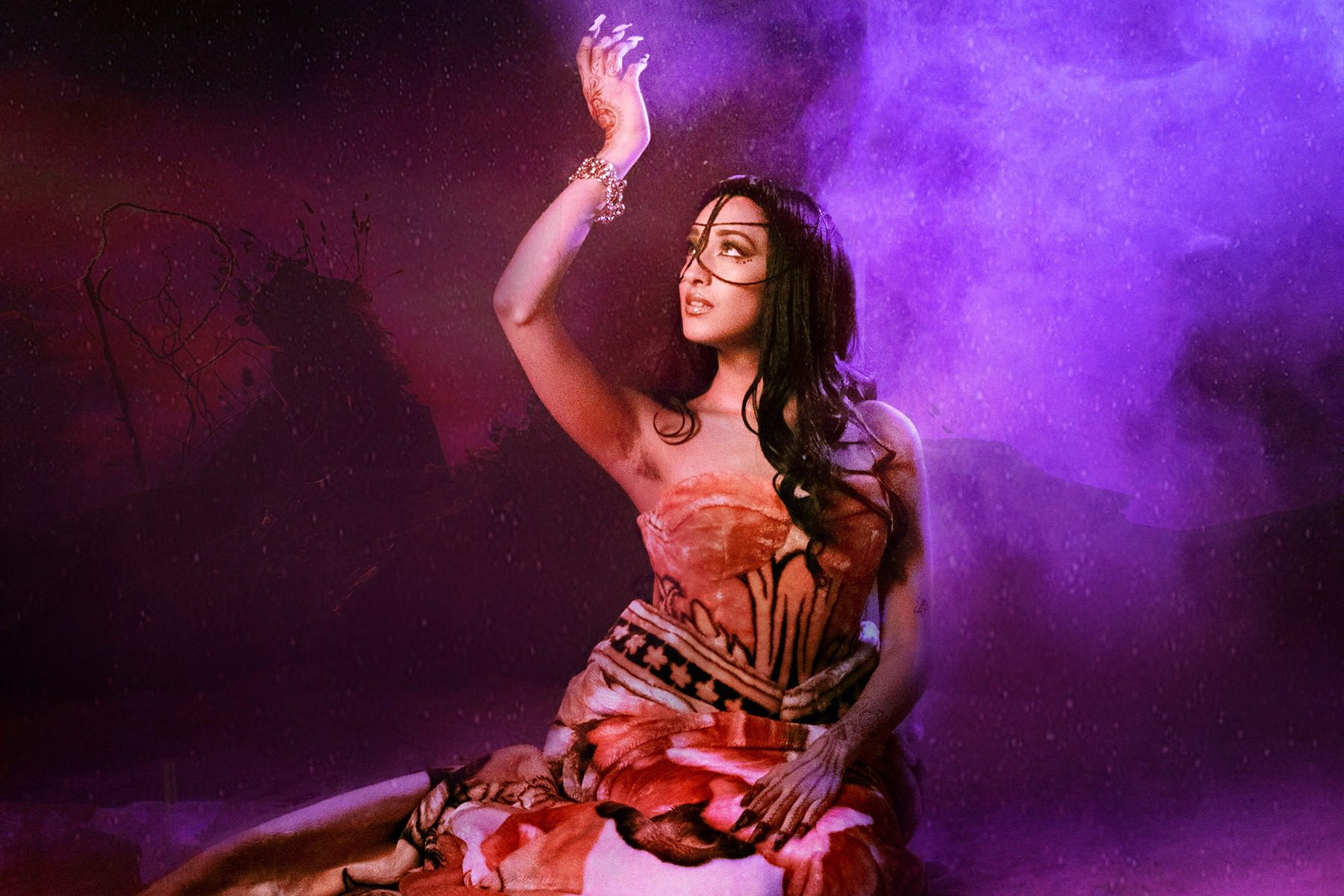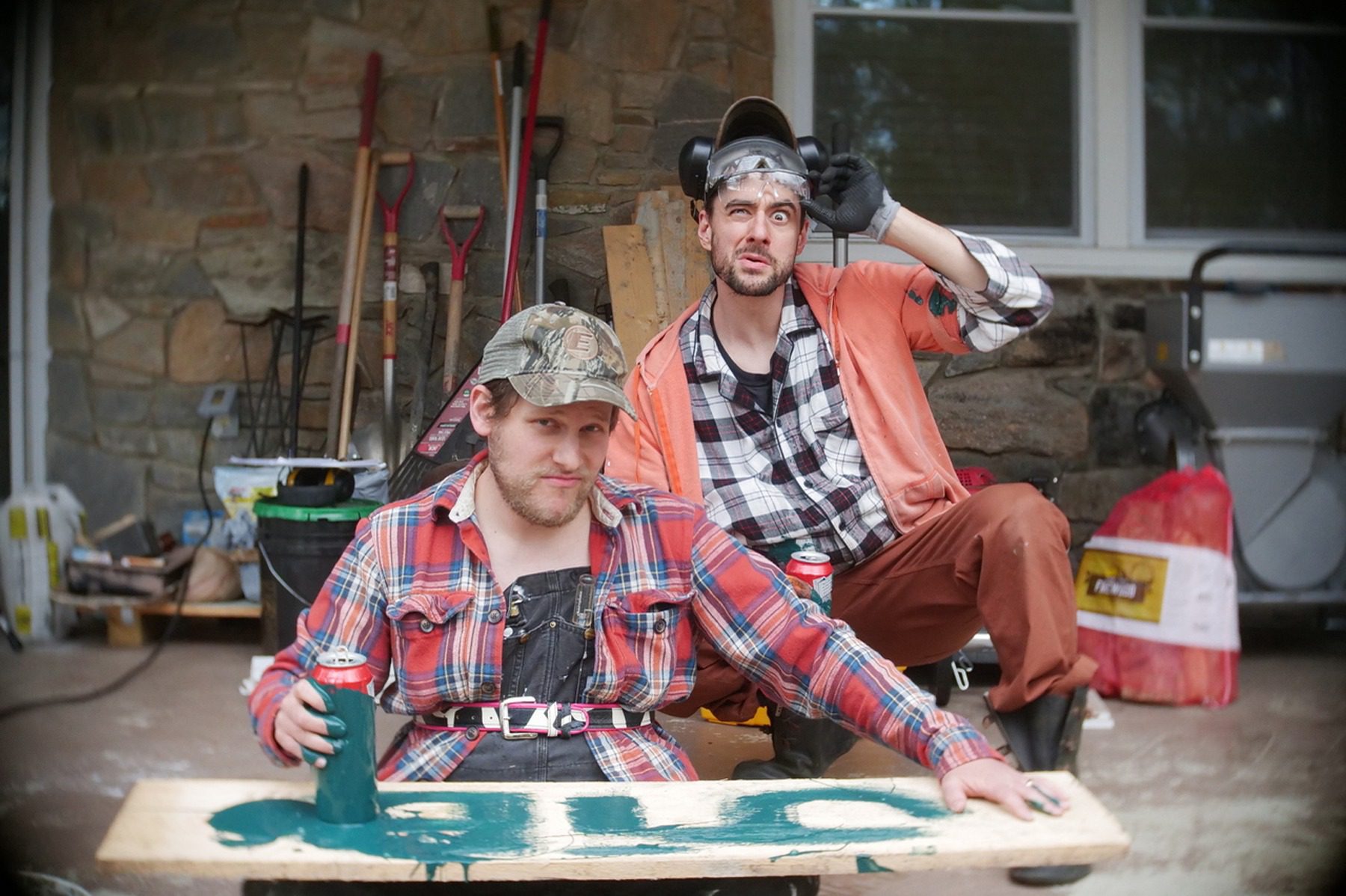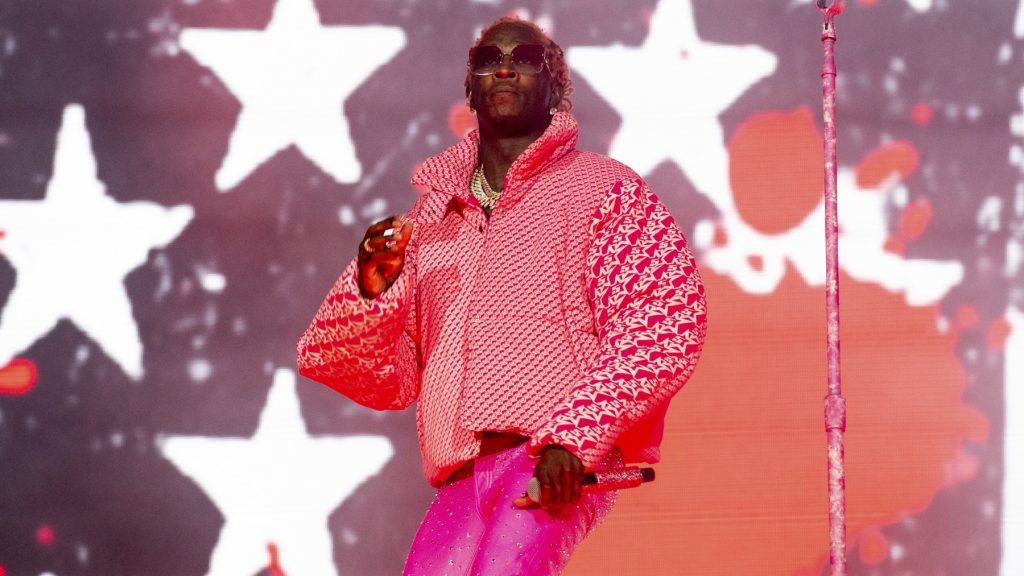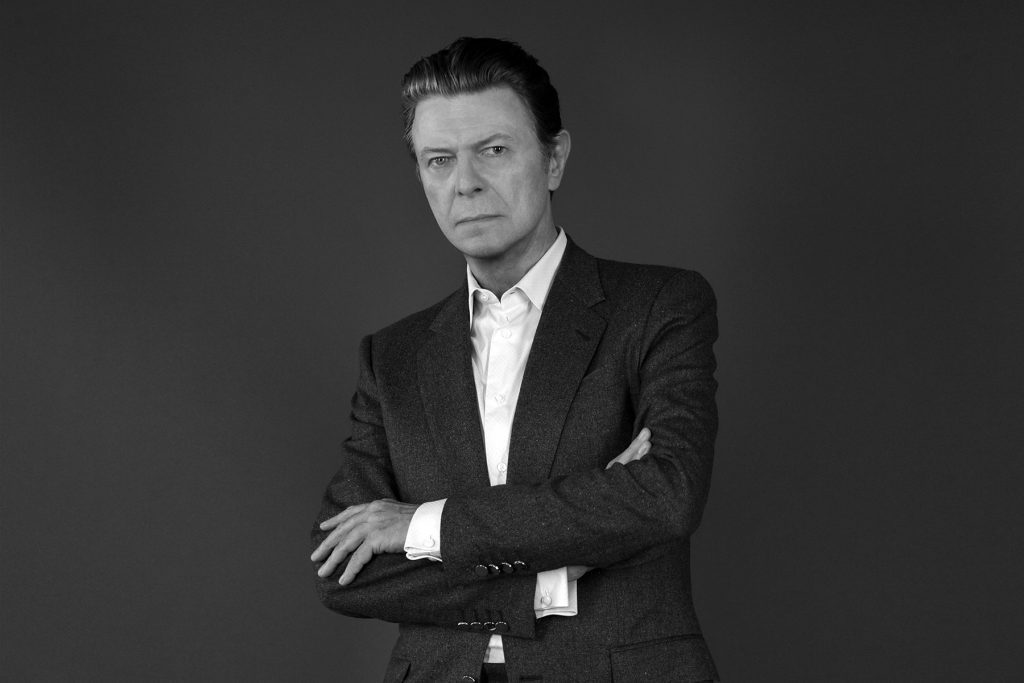
Raveena: Tales of a Dancing, Time-Traveling Space Princess
At the height of the pandemic, when clubs were closed and social gatherings seemed precarious and people were growing increasingly restless at home, the 27-year-old artist Raveena Aurora dragged a mirror out into her living room. She’d stand in front of it and dance almost every day, something that took her back to being a kid. “In middle school. the most popular music was a lot of stuff being influenced by Bollywood — all those Timbaland songs, Nelly Furtado, ‘Get Ur Freak On,’” she remembers. “That was the time where I was dancing very freely, just around my room.”
Those early-2000s pop songs that were deeply influenced by bhangra, Bollywood, and other South Asian beats — and the liberating experience of getting up and moving — ended up playing a huge role on her ultra-chromatic, eclectic new album Asha’s Awakening. The LP, which follows her 2019 debut Lucid, is her first on Warner and builds on the dreamy R&B she’s refined over the last several years, all while introducing rounder, plusher arrangements and harmonies.
blogherads.adq.push(function () {
blogherads
.defineSlot( ‘medrec’, ‘gpt-dsk-tab-article-inbody1-uid0’ )
.setTargeting( ‘pos’, [“mid-article”,”mid”,”in-article1″,”mid-article1″] )
.setSubAdUnitPath(“music//article//inbody1”)
.addSize([[300,250],[620,350],[2,2],[3,3],[2,4],[4,2],[640,250]])
;
});
“I think that me tapping into my body was such a big part of me wanting to explore dance through music on like songs like ‘Secret’ or ‘Magic,’” she says. “I think I’d forgotten about that part of myself, and it was really beautiful awakening it — and realizing that it’s a huge part of who I am and what I love.”
It’s not just dance that’s featured heavily on Asha’s Awakening. Raveena was limitless when she was drawing inspiration for the album, plucking influences from decades of music history and turning the project into a multi-hued synthesis of all the ways that Western and South Asian music have always intersected.
The album centers around a character called Asha, who Raveena conceived as a Punjabi space princess learning about love and loss as she travels through time and across new planets. Asha is a glimpse at Raveena’s imaginative sense of world building: The sonic universe she’s created for the character is celestially bright and vibrant, rooted in Sixties and Seventies rock, soul, and disco, as well as touches of nostalgic pop and her favorite Bollywood classics. She dug into the careers of artists like Alice Coltrane and Asha Puthli and revisited the traditions that her family — who escaped the 1984 Sikh genocide in India — listened to when she was growing up in Queens.
The final result is a careful tapestry, woven together through a three-year process that highlights constant cross-cultural conversations in music. “Obviously I was seeing how in the West, this whole psychedelic rock and soul movement was very inspired by Indian instruments and sitars and flute and Indian melodies,” she says. “But then back in India, I was also researching old Bollywood music, and they were so inspired by what was happening in soul, rock, and the effect that Black music has had over the entire word. What I found is that the world is way more connected than we even think, and that is really beautiful.”
The songs on Asha’s Awakening feel bountiful, partially a result of Raveena expanding her band and exploring new arrangements in a completely uninhibited way. The moody, up-tempo beat of “Secret,” boosted by a verse from Vince Staples, opens with rich cascades of swarmandals. “Rush,” a playfully trippy track inspired an acid-fueled trip Raveena took to the Eastern sound installation at New York’s Rubin Museum, is inspired by rhythms and movement. On “Circuit Board,” her voice is pearly and effortless as it glides over the experimental soul arrangements and Indian percussion — a detail that Raveena calls “the heartbeat” of the entire album.
“We just ordered different Indian instruments that we had no idea how to play. It was like, ‘How do we incorporate this?’” she says. “And we learned how to play them, probably in our own fucked up way — that was a really challenging part, figuring out how to use instruments and engineer instruments that we had no idea how to use, but going off of intuition and feeling.”
blogherads.adq.push(function () {
blogherads
.defineSlot( ‘medrec’, ‘gpt-dsk-tab-article-inbody2-uid1’ )
.setTargeting( ‘pos’, [“mid-article2″,”mid”,”in-article2″,”mid-article”] )
.setSubAdUnitPath(“music//article//inbody2”)
.addSize([[300,250],[300,251],[620,350],[2,4],[4,2],[3,3],[2,2]])
.setLazyLoadMultiplier(2)
;
});
The arrangements bring out the emotion pulsing throughout the album. Raveena sprinkles in quiet, candid declarations as she makes peace with heartbreak, traumas, and losses she’s experienced: “Haven’t been good for a minute,” she sings on the disarming “Time Flies,” a standout where she reflects on adulthood, the end of a relationship, and an abortion she had in her twenties.
Raveena works through the character of Asha to find healing and self-acceptance, ending the journey on a twinkling, guided meditation that gently encourages listeners to explore their own feelings and stay present. “Part of why we feel joy, is because we also feel pain so deeply,” she says. “But there’s a lot of beauty in how many different emotions we experience, and ultimately, I think that’s what I was trying to capture.”




